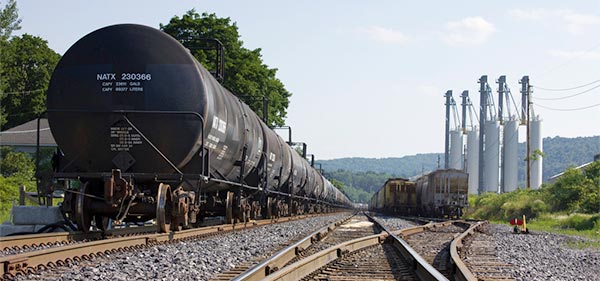Press Release
Nurses Applaud San Luis Obispo Vote to Reject Phillips 66 Oil Train Project, Cite Public Safety

The California Nurses Association/National Nurses United today welcomed the San Luis Obispo County Planning Commission vote Wednesday to reject a controversial Phillips 66 proposal to transport millions of gallons of crude tar sands oil through the county by rail every week.
CNA also urged the San Luis Obispo Board of Supervisors to reject any potential appeal by Phillips 66. Nurses have repeatedly joined with central California coast residents opposing the oil trains as a threat to public health and safety, as well as exacerbating the climate crisis.
The Planning Commission voted 3-2 to reject the plan by the oil giant to build a spur connecting rail shipments to the Nipomo Mesa refinery that would allow the transport of three trains every week with 80 rail cars hailing some 2.2 million gallons of the dangerous crude oil.
Rail accidents involving tar sands crude oil have created deadly blasts, and polluting spills with long term health hazards for communities around North America.
“The decision by the Planning Commission to reject the Phillips 66 proposal is tremendous!,” said Sherri Stoddard, RN, a Los Osos resident and CNA Board member. “We strongly oppose both the transport of oil by rail, as well as fracking in CA. It is time to move away from fossil fuels, and toward clean energy alternatives.”
“As a registered nurse and a Templeton resident, this is a health victory for our communities here on the Central Coast,” said Debra Sullivan, RN. “I sincerely hope that if Phillips 66 appeals this decision, that the San Luis County Board of Supervisors also reject this dangerous proposal. We live in California. It's time we get away from fossil fuels.”
CNA members in the county have repeatedly warned of the risk the oil trains pose to vulnerable populations, especially children and infants with still-developing lungs and respiratory systems. People with pre-existing respiratory and cardiovascular diseases also face an especially acute risk from potential spills.